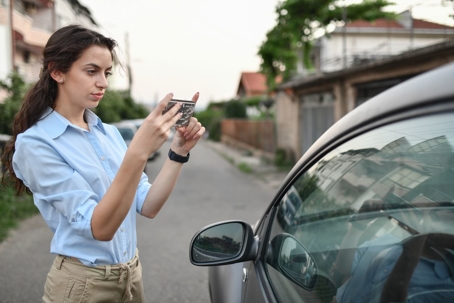In an era where our cars are as connected as our smartphones, Bluetooth functionality isn’t just a luxury—it’s a core feature. For many drivers, the ability to make hands-free calls, stream music, or use in-car apps is essential. But what happens when your vehicle’s Bluetooth system repeatedly fails or doesn’t work as promised?
If you're in California, the Lemon Law may offer you protection, even for tech problems like those below.
Bluetooth Connectivity Issues: More Than Just a Nuisance
Drivers across brands—from Ford and Toyota to Polestar and Tesla—have reported issues like:
- Pairing failures or dropped connections
- Intermittent audio or microphone issues
- Delays in response time from infotainment systems
- Inability to use built-in apps like Apple CarPlay or Android Auto via Bluetooth
These issues aren’t just annoying; they can interfere with safety, daily communication, and the vehicle’s advertised features. Many manufacturers do not have a fix for these issues, and often blame their customers’ phones and cords as the source of the issue. If you are having repeated issues, search whether this is a common issue with your vehicle.
Does the California Lemon Law Cover Bluetooth Issues?
✅ Yes—under the right circumstances.
California’s Song-Beverly Consumer Warranty Act (commonly referred to as the California Lemon Law) applies when:
- The vehicle is still under the manufacturer’s warranty, and
- A substantial defect can’t be fixed after a “reasonable number” of repair attempts.
Key point: If Bluetooth functionality was advertised or expected as part of the standard equipment, and it fails to function properly despite multiple attempts to fix it, you may be entitled to relief.
What Makes a “Substantial Defect”?
The defect must materially affect the use, value, or safety of the vehicle. While a broken cup holder likely doesn’t qualify,
Bluetooth failures might occur if:
- You bought the car specifically for tech integration (e.g., using it for business calls or navigation apps)
- It disrupts voice-to-text and other safety features required for legal driving
- It results in frequent dealership visits or downtime
What Should You Do If You're Experiencing These Issues?
- Document everything – Keep detailed notes of each issue, including dates, symptoms, and how the dealership responded.
- Bring it in for service – California Lemon Law generally requires at least two repair attempts, but more may help solidify your case.
- Request repair invoices – Always get written proof that the dealership attempted a fix. These are crucial for your legal claim.
- Consult a Lemon Law attorney – If the issue persists, a qualified lawyer can help determine whether you qualify for a refund or replacement.
What Could You Be Entitled To?
If your claim qualifies, you may receive:
- A buyback or refund, including taxes and registration fees
- A replacement vehicle of similar value
- Reimbursement for legal fees (manufacturers typically pay this if you win)
Conclusion
If your car’s Bluetooth system repeatedly fails, you don’t have to settle for frustration. In California, the Lemon Law protects consumers from technology that doesn’t meet advertised expectations, not just major engine or safety defects.
Feel free to contact O’Connor Law Group if you have questions. If you have had repeated issues with Bluetooth connectivity, your infotainment system, your screens, or your rear-view camera, you may have a lemon.
Contact O’Connor Law Group today for a free consultation.

